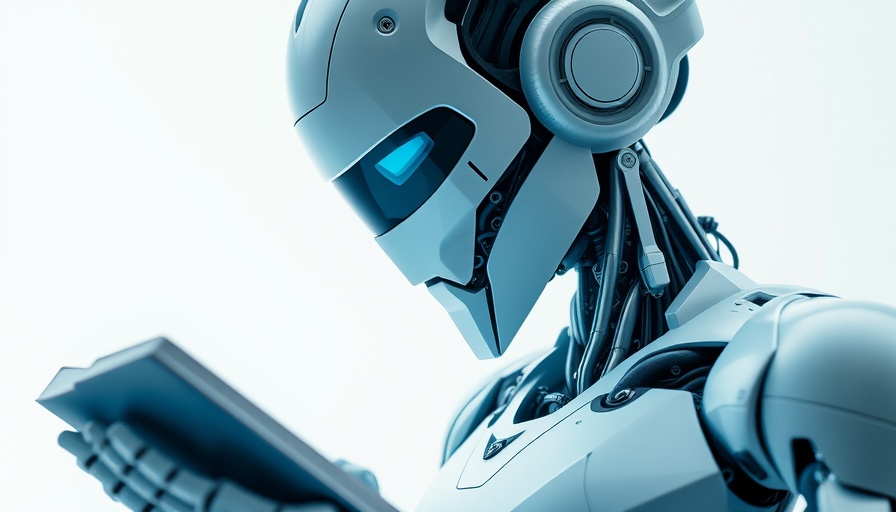
The AI Revolution: Changing the Landscape of Jobs
As we march into an era defined by rapid technological advancement, one question looms larger: Is AI really taking our jobs? Recent reports suggest a disturbing trend, especially for young college graduates entering the workforce. According to the New York Federal Reserve, the job market conditions for this demographic have severely worsened, now standing at a striking unemployment rate of 5.8 percent—the highest in recent times. Even fresh M.B.A. graduates from elite institutions are feeling the pinch, with many struggling to find suitable opportunities.
But what exactly is causing this shift? While the economy's restructuring post-Great Recession and diminishing wage benefits for college graduates are contributing factors, a critical force appears to be artificial intelligence. As presented by economist David Deming from Harvard, AI's capabilities to read, synthesize information, and generate qualitative outputs now overlap with those historically produced by entry-level employees in white-collar sectors.
AI's Threat: Not Just a Blue-Collar Woe
Historically, we have seen machines and algorithms eliminate blue-collar jobs; now, white-collar positions face the same fate. As law firms increasingly adopt AI for tasks typically handled by paralegals, and consulting agencies realize that a few skilled individuals can produce outputs equivalent to larger teams, the entry-level positions in these sectors are dwindling. The implications extend beyond direct job displacement. High investments in AI infrastructure may be diverting funds away from new hires as organizations prioritize their tech budgets over expanding their workforce.
The Mixed Blessing of AI in Education
In the realm of education, the emergence of AI tools like ChatGPT has sparked a variety of responses. Initially feared as an instrument of academic dishonesty, institutions have gradually started to adapt to the reality of AI's presence in classrooms. Many educators have begun leveraging AI to design assignment prompts, streamline administrative tasks, and even assist in content creation. This shift highlights a critical realization: while AI can replace certain tasks, it also offers opportunities to enhance learning experiences.
Adapting to Change: Practical Insights for Job Seekers
Given the uncertainties surrounding job markets, it's essential for individuals—especially recent graduates—to embrace adaptability. Developing skills that complement AI tools can set candidates apart. For instance, enhancing critical thinking, creativity, and emotional intelligence are vital traits that machines struggle to replicate. Moreover, networking within industries and gaining practical experience through internships can bolster employability.
Future Predictions: The Evolving Job Market
Looking ahead, alternatives to traditional career paths may emerge as AI continues to redefine markets. Positions focused on AI oversight, human-AI collaboration, and ethical AI governance could open new doors while simultaneously phasing out roles centered on routine tasks. It’s crucial for young workers to remain aware of these trends and invest in continuous learning and adaptability to stay competitive.
Ultimately, AI presents both challenges and opportunities. As graduates navigate this changing landscape, they must leverage technological advancements to supplement their skill sets rather than view them solely as threats. By doing so, they can ensure they remain relevant amid the evolving economy.
If you're interested in exploring new ways to navigate this changing job landscape, check out Prompt2Human to discover effective strategies for bypassing AI detectors.
 Add Row
Add Row  Add
Add 




 Add Row
Add Row  Add
Add 

Write A Comment